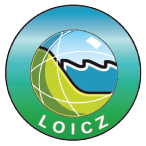3rd Arctic Coastal Dynamics Newsletter
April 2002
1 Introduction
The main purpose of the ACD Newsletter is to inform you as an Arctic researcher interested in coastal dynamics about the progress and activities of the IASC-IPA project Arctic Coastal Dynamics (ACD). The second Newsletter was sent out in June 2001 and this third Newsletter summarizes the achievements of the last months and the future activities.
2 Achievements since June 2001
2.1 Field work in 2001
- Laptev Sea: Within the frame of the Russian-German cooperation, fieldwork was conducted at the western coast of the Lena Delta. During July/August 2001 a Russian-German team studied coastal dynamics of an embayed coast separated from the sea by a 4-7 km wide lagoon, which is bordered by a chain of narrow barrier sand islands less than 1 m high.
- Kara Sea: Detailed onshore and offshore coastal studies have been performed in Marre-Sale.
- Beaufort Sea: Several sites in the Alaskan and Canadian Beaufort Seas were monitored. (1) GPS measurements for study of vertical motion along the coast from Resolute to Inuvik. (2) Coastal program at the mouth of the Mackenzie River to characterize coastal hazards as a basis for the establishment of a tourism site. (3) Tide gauges were installed along the Beaufort coast from the Alaska National Wildlife Refuge to the Hamlet of Tuktoyaktuk and water temperature gauges were installed along 2 transects in the Canadian Beaufort, and (4) two key sites were established at Barrow Alaska.
2.2 ACD workshop Potsdam (Germany) 26-30 November 2001
The second IASC/IPA-sponsored international ACD workshop was held in Potsdam, Germany, on November 26-30, 2001. Participants from Canada (2), Germany (8), Norway (3), Russia (6), Austria (2) and the United States (5) attended. The main objective of the workshop was to review the status of ACD according to phase 1 of the Science and Implementation Plan. During the first part of the workshop status reports of the ACD working groups and several papers dealing with different aspects of circum-arctic coastal dynamics were presented. During the second part the progress of the ACD working groups was discussed and, based on these discussions, the next steps were identified in the Steering Committee Meeting. The results are summarized in the following and detailed informed is given in the workshop report (Rachold, V., Brown, J. and Solomon, S. (eds.) 2002: Arctic Coastal Dynamics - Report of an International Workshop, Potsdam (Germany) 26-30 November 2001. Rep. Polar Research 413, 27 extended abstracts, 103 pp.), which can be obtained at the ACD secretariat.
Classification and mapping working group: The participants of the workshop agreed that at this stage of the project the highest priority is given to the assessment of sediment and organic carbon flux to the Arctic Ocean through coastal erosion. Accordingly, a coastal mapping template, which allows coastal scientists to record information about Arctic coasts to be used for a circum-arctic database of coastal retreat and sediment and organic carbon input, was developed. Regional experts will be responsible to define homogeneous coastal segments and apply the coastal mapping template following the instructions given in the guidelines for the ACD mapping and data template. The completed templates are to be sent to and, after quality-check, will be imported into PANGAEA , which is a web-deliverable data system for environmental and geological sciences. For further GIS-based analyses the coastal data can be exported from the PANGAEA system. These analyses will include the determination of the length of the coastline for the individual coastal segments based on the GEBCO coastline, the quantification of volume of eroded material based on morphology, and as a third step the assessment of the sediment and organic carbon flux based on the mapping and data template.
Literature working group: Based on a bibliography containing ca. 500 references of Russian literature related to ACD, which was presented during the workshop, regional review articles summarizing the published information about coastal geomorphology, sediment and organic carbon yield are anticipated.
Environmental data working group: The Canadian Geological Survey (S. Solomon) has an open position for a PostDoc, who will be responsible for the extraction, compilation and analysis of ACD relevant environmental data.
Metadata working group: A circum-Arctic coastal Geographical Information System (GIS) to display the metadata information was presented during the workshop.
2.3 ACD conference presentations since June 2001 at:
- 2001 MARGINS Meeting. Kiel, Germany, 2-6 October 2001
- Progress in Arctic Ocean Research. Stockholm, Sweden, 5-7 November 2001.
2.4 New ACD related projects:
- Arctic Coastal Dynamics of Eurasia: Classification, Modern State and Prediction of its Development Based on GIS Technology, INTAS Open Call 2001, 2332 (funded 2002-2004)
- Arctic Coasts of Eurasia: Dynamics, Sediment Budget and Carbon Flux in Connection with Permafrost Degradation, INTAS Open Call 2001, 2329 (funded 2002-2005)
- European Union Northern Dimensions proposal - German-Canadian cooperation on Arctic Coastal Dynamics (funded 2002)
- Permafrost Dynamics in the Laptev Sea coastal region, German Ministry of Education and Research (proposal submitted)
- Analysis of Coastal Meteorological and Oceanographic Forcing in the Arctic Basin - U.S. International Arctic Research Center (IARC)
3 Forthcoming ACD relevant meetings
- Arctic Science Summit Week (Groningen, 21-27 April 2002): ACD presentation at the Arctic Ocean Science Board
- Annual Meeting of the Russian Permafrost Community (Pushchino, May 2002): special ACD session
- Eighth International Conference on Permafrost (Zurich, July 2003): special session on coastal permafrost
- Fourth International Conference on Arctic Margins -ICAM IV (Halifax, 30 September to 3 October 2003): special session on Arctic coasts
4 Next ACD workshop
- To be organized in Oslo, 2-6 December 2002
5 ACD related field work in 2002
- Laptev Sea: A Russian-German team will perform coastal studies at the New Siberian Islands.
- Kara Sea and Barents Sea: A Russian group will concentrate on the coasts of western Yamal Peninsula ( Marre-Sale) and Kolguev Island.
- Beaufort Sea and western Arctic Archipelago: A baseline assessment of coastal conditions in the vicinity of coastal communities will be undertaken as part of a study to determine potential impacts of sea level rise.
- U.S.-Canadian Beaufort Sea: The observations at key sites will be continued.
- Ny-Aalesund: Coastal studies will be carried out by a Norwegian team.
responsible: V. Rachold










